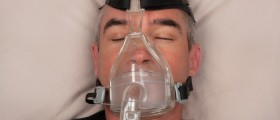
Sleep is usually divided into for stages: the beginning, light sleep, and stages 3 and 4 which are non-rapid-eye movement stages (REM stages). REM sleeping is cyclic and it happens every 90 minutes of night sleep.
Dreaming is the more common during deeper stages (3 and 4) than during the light sleep. Often, what you dream depends on the stage of sleep you are in, just before you awake. Dreams occurring in REM sleep are usually more detailed and vivid, than those in stages 1 and 2. However, you’ll easier remember the dream in first stages, because this phase of dreaming is similar to awaken state.
Dreams may have or may not have a meaning. Nevertheless, the fact is that dreaming is necessary for our memory, learning and adaptation to stress.
Nightmares
Frightening dreams or nightmares are extreme scary night dreams that cause a person to wake up suddenly. It might be very detailed dream, strange or even bizarre and the person dreaming it usually can’t sleep any more.
They can be causes of awakening at night, insomnia, anxiety and memory problems. Nightmares are very common, but a bit more frequent in women than in men. About 5 to 8% of adults and almost 40% of children suffer from frightening dreams.
Sometimes, use of certain medications may provoke nightmares. These are usually drugs that affect the central nervous system, such as narcotics, barbiturates or anti-depressants. Withdrawal from alcohol, benzodiazepines or barbiturates might also be associated with dreaming issues.
Treatment for Nightmares
For nightmares happening to children, parents play the major role. Usually, all it takes is some comfort and a hug and the bad dreams get easily forgotten. Rarely, dreaming disorders in children need to be treated with medications, and psychotherapy is sometimes recommended for older kids.
Clonazepam (Klonopin) is proven efficient and safe to treat REM behavior disorder, parasomnias and nightmares. The usual dose is 0.5 to 1mg before sleep.
In some cases nightmares may occur after a trauma or stressful event. This may even be helpful for a patient, because it could provide a way to overcome the situation. If bad dreaming become chronic condition and it wasn’t caused by some traumatic event, people suffering from it may experience serious day problems. The most usual are memory loss, concentration problems and daytime sleepiness.
Psychotherapy, especially behavioral treatments are proven successful in dealing with both transient and chronic nightmares. This treatment may be individual or consist of a group therapy and it usually works for more than 70% of the patients.

















Your thoughts on this
Loading...